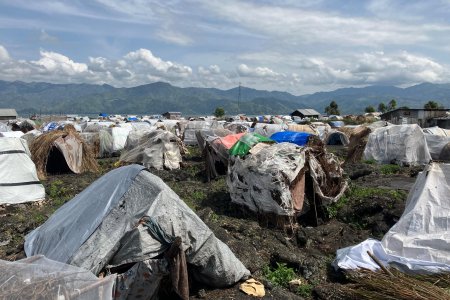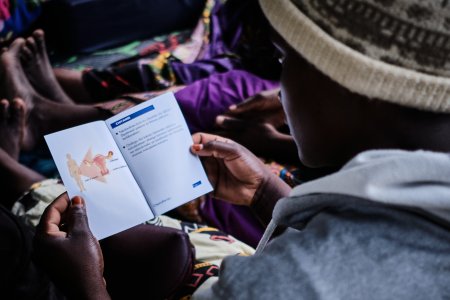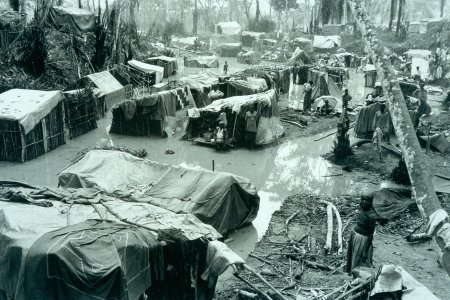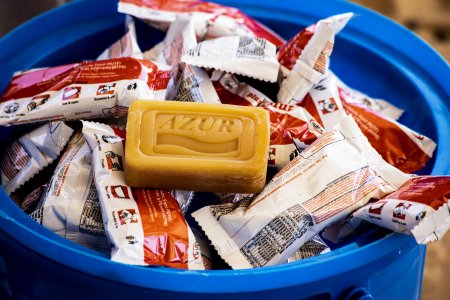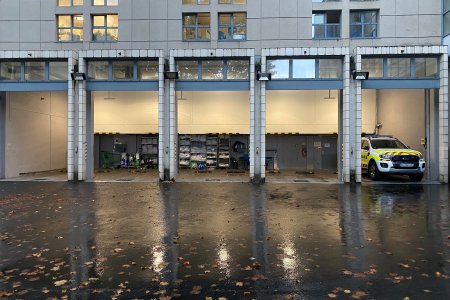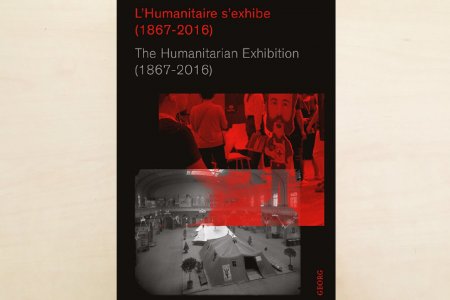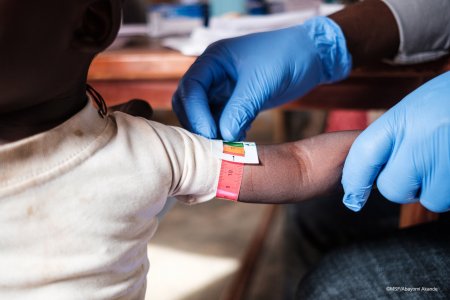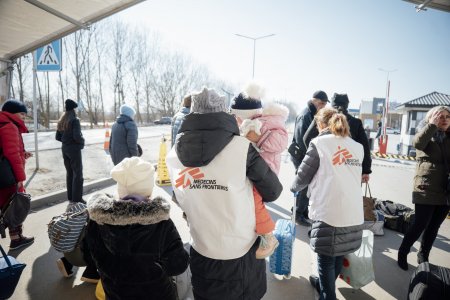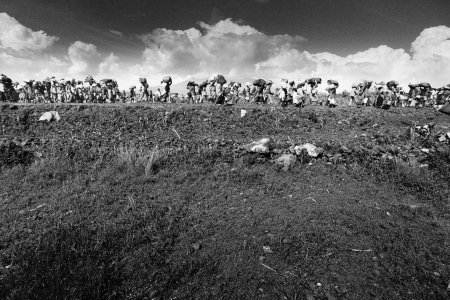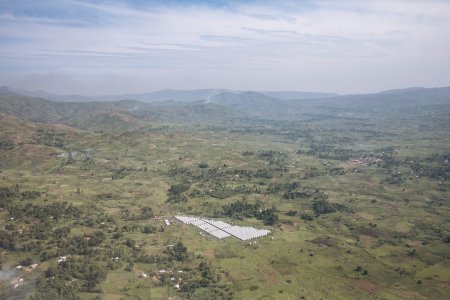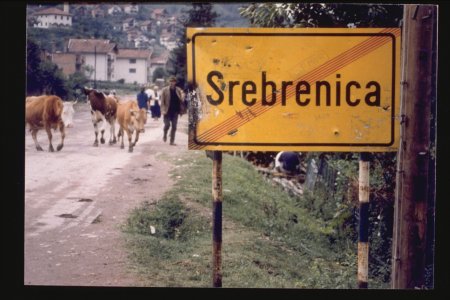OFF THE CUFF is a participative blog run by the Crash. Its purpose is to expose the diversity of experiences and opinions that exist among humanitarian aid practitioners. Online comments as well as direct contributions are more than welcome.
Views expressed on this blog are those of their authors and do not necessarily reflect the official positions of Médecins Sans Frontières
Goma’s IDPs: a catastrophe in plain sight
Michaël Neuman describes his visit to Goma’s IDP camps, where he spent two weeks. He shares his dismay at the low level of assistance provided by the aid sector, especially when we recall that the Sphere standards, born precisely out of the failure of the humanitarian response in this same region of Goma in the mid-1990s, were conceived and championed by all of us.
The patient-centered approach: We need an independent Ombudsman
Based on a reflection regarding how patient rights have changed, in France in particular, Fabrice Weissman discusses humanitarian medicine’s shortcomings in that regard and proposes several avenues for improvement at MSF. This text was originally posted on MSF’s associative website, The Souk.
Listen to the MSF Speaking Out podcast: “The Hunting and Killing of Rwandan refugees in Zaire-Congo 1996-1997”.
MSF releases the podcast “MSF Speaking Out: The Hunting and Killing of Rwandan refugees in Zaire-Congo 1996-1997” describing the dilemmas, challenges and controversies faced by the MSF teams including: could MSF communicate publicly on the health condition of the refugees when its access to them had recently been denied? When it realised its teams were being used to lure and kill refugees, should the organisation cease its activities and condemn this manipulation?
Resale of therapeutic food: who benefits from demonising mothers?
This article was published on December 26th, 2022 on the Souk, the MSF associative website.
Accusing the mothers of malnourished children of being lawless fraudsters is a well-worn trope in malnutrition treatment programmes worldwide – and one that has resurfaced recently in Nigeria, stirred up by health workers and the media. These types of accusations obscure a series of tricky truths on the control of resources, the quality of malnutrition treatment programmes, and on the extreme precariousness in which many families live. We see all of this in northwest Nigeria’s Katsina state, where we are currently conducting the largest malnutrition programme in the history of Médecins Sans Frontières/Doctors Without Borders (MSF).
An equation for measuring emergencies?
“Death is an extremely grave non-emergency; its only treatment is mourning”. That is how doctor Miguel Martinez Almoyna introduces his concept of emergency. The retired 92-year-old anaesthesiologist played an active role in creating France’s SMUR, and later SAMU, emergency medical systems. Still quite active overseas (in Brazil and Mexico), where he has exported the French pre-hospital model, he explains his approach to régulation médicale, whose purpose is to guide patients to the medical services their condition requires while offering a range of responses corresponding to different degrees of severity and urgency.
The Humanitarian Exhibition (1867-2016)
The Swiss editor Georg just published in open access a collection of articles edited by Sébastien Farré, Jean-François Fayet and Bertrand Taithe. This book is devoted to the emergence of humanitarian exhibitions either within wider events or in their own right, as an attempt to focus attention and make sense of the aid humanitarians provided. The book argues that this exhibition process was central to the narration of the humanitarian project. It did not simply represent humanitarian work, it helped shape its essential identity and sense of purpose. Entail the development of new ways of thinking about needs and emergencies.
Decoupling undernutrition and mortality?
All the warning lights are flashing red this year: drought, the high prices of grains and fertilisers exacerbated by the war in Ukraine, reduced imports and speculation, numerous armed conflicts, a record number of refugees to be fed, disengagement of institutional donors,… With the exception of locusts, all the determinants of severe food scarcity are there, from Afghanistan to the Sahel, including Yemen, the Horn of Africa, and the Indian subcontinent. To the point of threatening all of the progress that was made in treating undernutrition after the 2005 crisis in Niger, which was the starting point for global advances in managing malnutrition in places where it is commonplace. It is time for a general mobilisation to limit the scale of the coming catastrophe. Interview with Jean-Hervé Bradol by Elba Rahmouni.
Medical aid in the time of war
In a country with a solid medical infrastructure and faced with a large-scale international mobilisation, what is the place of MSF in Ukraine and beyond? "We are not currently in the front line of emergency care provision," write Thierry Allafort Duverger and Michael Neuman, who see our work in limited areas, particularly with those "left behind," and in the longer term.
Those who remember. DRC, Empire of Silence
The film Empire of Silence, directed by Thierry Michel, examines the massacres committed in the Democratic Republic of the Congo from 1996 to the present. In this blog, Marc Le Pape introduces the film’s structure, some of the principal witnesses to the mass executions and some of the military and political actors responsible for them, and Congolese reactions to their impunity.
Hommage to Bert Ingelaere
Today we learnt of the passing of Bert Ingelaere. Our thoughts go out to his friends, colleagues, and family.
MSF releases the “Speaking out: Srebrenica podcast”
MSF releases in English, French and in Arabic the “MSF Speaking Out: Srebrenica” podcast based on the original MSF Speaking Out Case Study (SOCS) “MSF in Srebrenica, 1993 – 2003”.
Le Grand Voyage d'Alice
The comic book "Le Grand Voyage d'Alice" was drawn by Gaspard Talmasse and published by La boîte à bulles on November 17th. The preface of this comic book was written by Dr. Jean-Hervé Bradol, former president of MSF and director of studies at the Reflection center of MSF (MSF-Crash). The book won the MSF prize at the Carnet de voyages Festival in Clermont-Ferrand, held from November 19th to the 21st.

